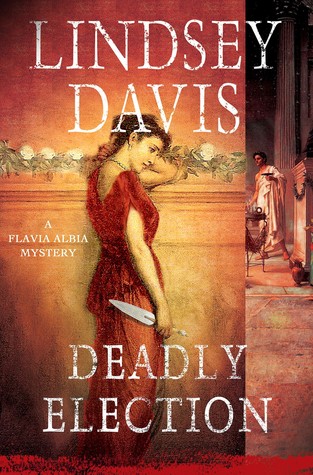 Deadly Election (Flavia Albia Mystery, #3)
Deadly Election (Flavia Albia Mystery, #3) by
Lindsey Davis Format: eARC Source: supplied by publisher via Edelweiss Formats available: hardcover, paperback, ebook, audiobook
Genres: historical fiction,
historical mystery Series: Flavia Albia #3 Pages: 320
Published by Minotaur Books on July 14, 2015
Purchasing Info: Author's Website,
Publisher's Website,
Amazon,
Barnes & Noble,
Kobo,
Bookshop.org,
Better World Books Goodreads In the blazing July heat of imperial Rome, Flavia Albia inspects a decomposing corpse. It has been discovered in lots to be auctioned by her family business, so she's determined to identify the dead man and learn how he met his gruesome end.
The investigation will give her a chance to work with the magistrate, Manlius Faustus, the friend she sadly knows to be the last chaste man in Rome. But he's got other concerns than her anonymous corpse. It's election time and with democracy for sale at Domitian's court, tension has come to a head. Faustus is acting as an agent for a 'good husband and father', whose traditional family values are being called into question. Even more disreputable are his rivals, whom Faustus wants Albia to discredit.
As Albia's and Faustus' professional and personal partnership deepens they have to accept that, for others, obsession can turn sour, and become a deadly strain that leads, tragically, to murder.
My Review:
I want to start this with “Once upon a time” but I’m not sure whether that’s once upon a time, in 1989, the author published the first book in a historical mystery series featuring a hard-boiled rapscallion of a private inquiry agent named Marcus Didius Falco. The series ran for 20 books, until Falco passed the investigative torch to his adopted daughter Flavia Albia. Deadly Election is the third book in her series, which is now at ten books and continuing.
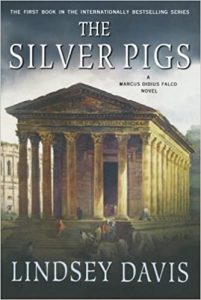 It could be “once upon a time”, back when audiobooks were still on actual tape, I listened to that first book, The Silver Pigs, and picked up all the subsequent books I could get my hands on in any form.
It could be “once upon a time”, back when audiobooks were still on actual tape, I listened to that first book, The Silver Pigs, and picked up all the subsequent books I could get my hands on in any form.
At the time, the series was a bit like the bear dancing, in that you are not surprised it’s done well, you’re surprised it’s done AT ALL. But in the end, it was done and done very well indeed, in spite of the seeming implausibility of the protagonist.
Once you’ve read the fortunes and misfortunes of the father, it seems natural to continue the adventure with the daughter who brings her own version of wry intelligence mixed with utter cynicism to her own investigations – following in her father’s often self-indulgent footsteps.
Flavia Albia is a different kind of investigator altogether. Not that she doesn’t find herself in trouble as often as her father did. It’s just that many of the times Falco had to be broken out of jail it was his own fault due to some of that self-indulgence. When Flavia Albia gets into trouble it’s usually because she’s working too hard or following too closely in a case. The former at least was something her father was seldom accused of.
And if it seems like I’m meandering a bit or giving a lot of background, that’s actually kind of how both series work. Because there is generally a lot of background, all to the purpose of immersing the reader in the world inhabited by Flavia Albia and her frequently disreputable family – with her “dear old dad” as the head disreputable. Without his redoubtable wife, Helena Justina, he would never have managed to stay any course long enough to have enough to retire on – as he has.
But as we walk the streets of Imperial Rome with Flavia Albia, we are able to immerse ourselves in her world. It’s a fascinating view of a time and place long subsumed by history, made all the more absorbing because as much as many things are different, human beings don’t seem to have changed a bit.
For good and for ill. Considering Albia’s profession, she’s better off if a few more people are doing ill – as then they might need her services as an “informer” – otherwise known as a private inquiry agent or, as anachronistic as the term would be – private detective.
In Deadly Election, she has two cases to wrangle with. One comes to her through her friend – and possibly her eventual lover, Manlius Faustus. He’s already been elected to public office, but he’s now mentoring his childhood friend into the business. They’re using Albia’s services to investigate their rivals to see if some dirt can be found to foul up their campaigns – while trying to keep ahead of whatever dirt their opponents might dig up on them.
But the election has already turned deadly, as Albia’s other work, assisting with the family auction house, has turned up a dead body locked in a storage crate scheduled for auction. At first, Albia has no clue to the corpse’s identity, but as she investigates she discovers that the late lamented may not have had an enemy in the world, but he certainly had a relative in that race for public office.
It’s up to Albia to figure out who done it and why at a time and place where forensics were non-existence, women officially had no public role (unofficially was an entirely other matter) and where everyone is afraid to talk because the emperor’s agents are everywhere – looking for possible – or potential traitors.
Escape Rating A-: Part of what makes these series fun is that each book begins with what almost seems like a lot of extraneous information. Information that turns out not to have been extraneous at all by the time the story ends. But it does feel like an immersion process, that it takes time to become acquainted, or re-acquainted, with Albia’s Rome as she experiences it.
And to get used to her first-person voice, because she’s an intelligent outsider who has learned to be whoever and whatever she needs to be to get the job done and get paid by her client. But behind her mask of professional politeness she’s wry and snarky and frequently wishes she could let loose with a cutting remark or ten – because so many of her clients deserve it. Her thoughts can feel very modern, just as her adopted father’s did, but it works surprisingly well.
As Flavia goes on with her business and takes us through her Rome, we start to feel the cobbles under our feet, the mud between our toes, and even smell the overwhelming decay of the liquefying corpse the auction house’s staff find locked in a chest.
At first we’re watching her, and then we’re with her, in a way that wouldn’t work nearly as well if the story didn’t circle around to the case the way it does.
A lot of this particular story is about family ties and nepotism in politics. (Doesn’t that sound all too familiar?) Also it takes place in the middle of a very long, very hot summer, and that seems familiar as well. Forensics are non-existent. She has to solve her cases by painstakingly asking questions of everyone involved and piecing together the parts of the answers that might be true.
It’s easy for both Albia and the reader to get lost in the cover ups and lies, and isn’t that just politics all over.
At the same time, Albia’s relationship with Faustus is driving her crazy. He seems to be the only man in Rome immune to her charms. He’s divorced, she’s a widow, there’s no reason they can’t embark on an affair. Except that they are not of the same class. How much social opprobrium he’s willing to endure is not something she’s willing to risk her heart on.
But this case throws them together at every turn. Which makes it a lot of fun for the reader to wonder whether they’re going to get together or even if they should, while Albia takes a hard look at all the candidates for office and all the murder suspects for that poor corpse and begins to think they might be one and the same.
The heart wants what the heart wants, the cases aren’t going to be easy to solve, and the emperor is insanely paranoid – adding a level of unpredictable danger to a situation that no one except Flavia Albia wants to cope with in the first place!
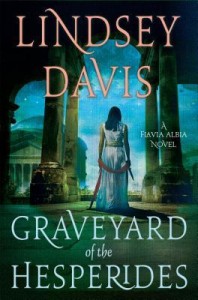 But it’s all a lot of fun for any reader, like this one, who loves historical mysteries set in unusual times and places. And for any reader who likes their protagonists to have an inner asshole voice that isn’t always as inner as it should be.
But it’s all a lot of fun for any reader, like this one, who loves historical mysteries set in unusual times and places. And for any reader who likes their protagonists to have an inner asshole voice that isn’t always as inner as it should be.
In other words, I had a ball with this book, even if Albia wasn’t always having one herself. I’ll be back sometime with the next book in the series, The Graveyard of the Hesperides, the next time I’m in the right mood, if only to see how Albia’s romance is – or isn’t – going!


 Current Giveaways:
Current Giveaways: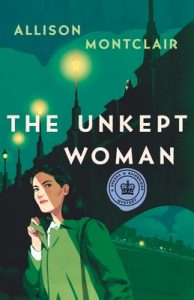 Blog Recap:
Blog Recap: Coming This Week:
Coming This Week:





















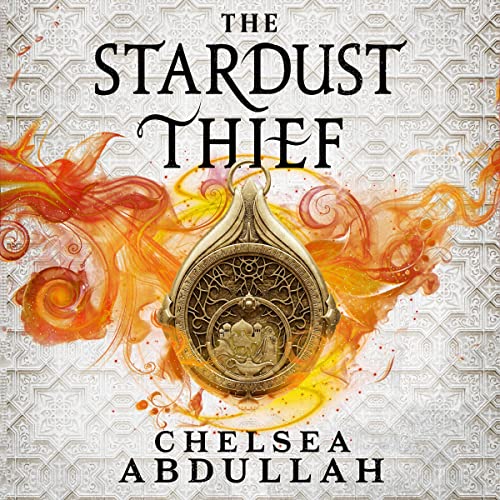 The Stardust Thief by
The Stardust Thief by  But the story is a nearly endless ‘out of the frying pan into the fire’ kind of story, as one near-death adventure – and escaping therefrom – leads directly into another. Much as the tales that Shafia – who we know as Scheherazade – told to the Sultan to keep him from killing her. This adventure is clearly intended to remind readers of
But the story is a nearly endless ‘out of the frying pan into the fire’ kind of story, as one near-death adventure – and escaping therefrom – leads directly into another. Much as the tales that Shafia – who we know as Scheherazade – told to the Sultan to keep him from killing her. This adventure is clearly intended to remind readers of  Deadly Election (Flavia Albia Mystery, #3) by
Deadly Election (Flavia Albia Mystery, #3) by  It could be “once upon a time”, back when audiobooks were still on actual tape, I listened to that first book,
It could be “once upon a time”, back when audiobooks were still on actual tape, I listened to that first book,  But it’s all a lot of fun for any reader, like this one, who loves historical mysteries set in unusual times and places. And for any reader who likes their protagonists to have an inner asshole voice that isn’t always as inner as it should be.
But it’s all a lot of fun for any reader, like this one, who loves historical mysteries set in unusual times and places. And for any reader who likes their protagonists to have an inner asshole voice that isn’t always as inner as it should be.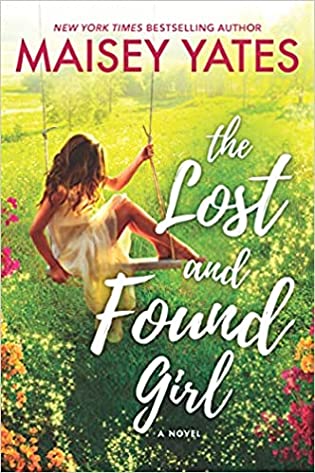 The Lost and Found Girl by
The Lost and Found Girl by 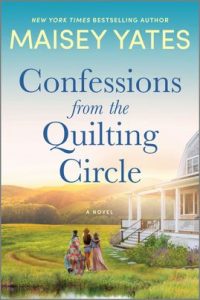 Escape Rating B-: One of the things I like about this author’s contemporary romances is that the situations that her protagonists are in tend to be fairly plausible. The dramatic tension in the romance is never a misunderstandammit, but rather two people honestly coming from different places that are, in real life, hard to resolve. (My personal favorite of hers is last year’s
Escape Rating B-: One of the things I like about this author’s contemporary romances is that the situations that her protagonists are in tend to be fairly plausible. The dramatic tension in the romance is never a misunderstandammit, but rather two people honestly coming from different places that are, in real life, hard to resolve. (My personal favorite of hers is last year’s 
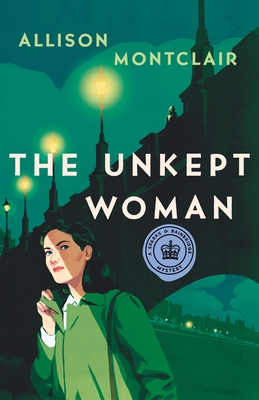 The Unkept Woman (Sparks & Bainbridge, #4) by
The Unkept Woman (Sparks & Bainbridge, #4) by 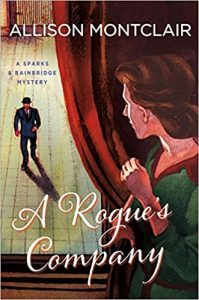 The title of this one, just like the previous book in the series,
The title of this one, just like the previous book in the series, 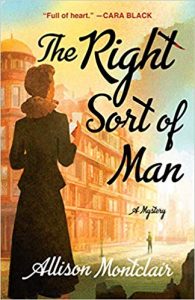 So one side of this story is very much a spy thriller, as Iris has to use all of her old tradecraft to hunt down who really done it and why. Meanwhile, Gwen is demonstrating that she’s learned more from Iris than even she expected, and that she’s more than capable of fighting any corner she has to – even if she has to assault the police to get them to listen to her.
So one side of this story is very much a spy thriller, as Iris has to use all of her old tradecraft to hunt down who really done it and why. Meanwhile, Gwen is demonstrating that she’s learned more from Iris than even she expected, and that she’s more than capable of fighting any corner she has to – even if she has to assault the police to get them to listen to her.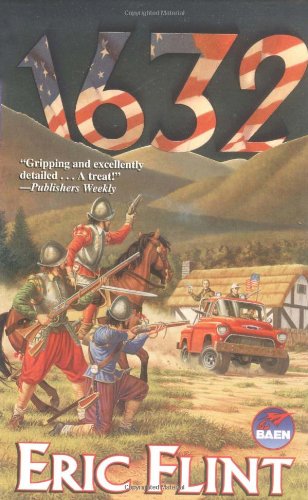 1632 (Ring of Fire #1) by
1632 (Ring of Fire #1) by 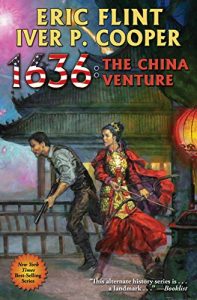 The wedding reception also created a rather convenient excuse for a lot of people to be in this small and already dying town than would have been true on a typical Sunday. It is particularly notable that the only black people in town – a much needed doctor and his paramedic daughter – are only there for the wedding. Otherwise the town would be almost entirely monochromatic.
The wedding reception also created a rather convenient excuse for a lot of people to be in this small and already dying town than would have been true on a typical Sunday. It is particularly notable that the only black people in town – a much needed doctor and his paramedic daughter – are only there for the wedding. Otherwise the town would be almost entirely monochromatic. So I had fun. I had a lot of thoughts re-reading this book, but I also had a lot of fun. Even if things were a lot easier than I expect they would have been or should have been, I enjoyed watching these highly competent people doing their best to not just survive but to make a real life for themselves, their neighbors AND their posterity in a place where none of them could ever have expected to be.
So I had fun. I had a lot of thoughts re-reading this book, but I also had a lot of fun. Even if things were a lot easier than I expect they would have been or should have been, I enjoyed watching these highly competent people doing their best to not just survive but to make a real life for themselves, their neighbors AND their posterity in a place where none of them could ever have expected to be.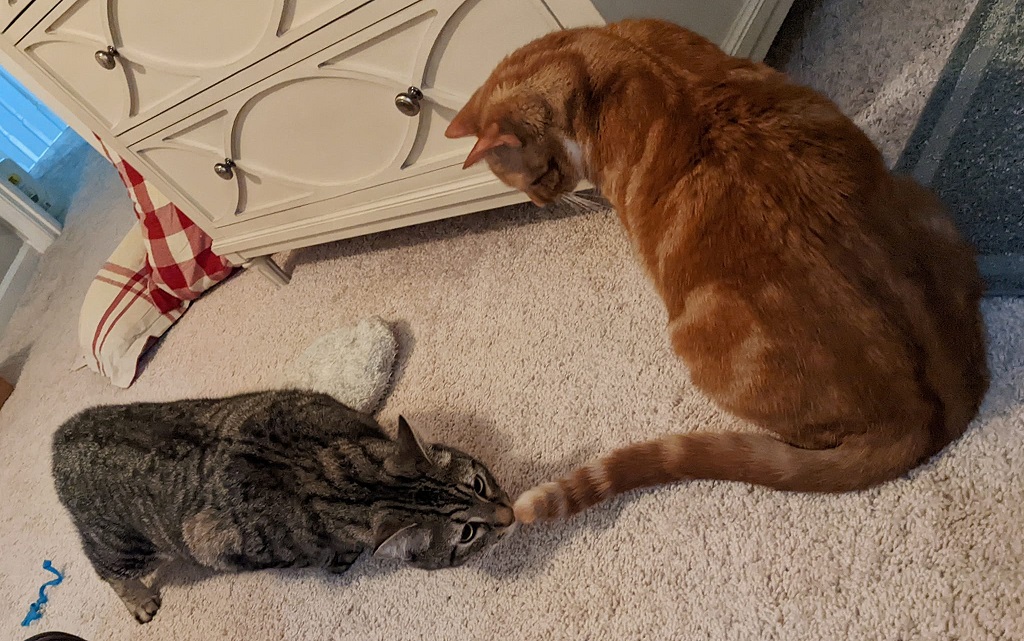
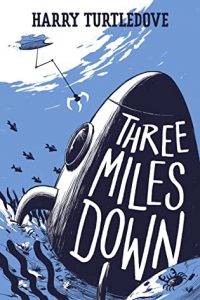 Blog Recap:
Blog Recap: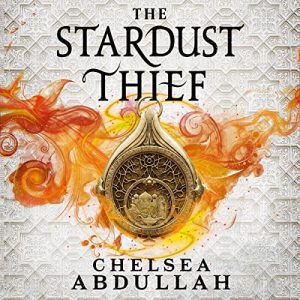 Coming This Week:
Coming This Week:




















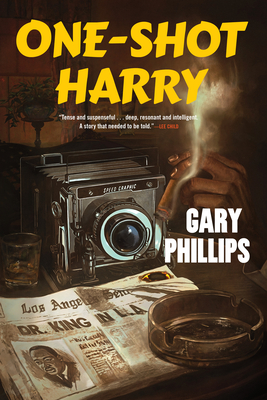 One-Shot Harry by
One-Shot Harry by